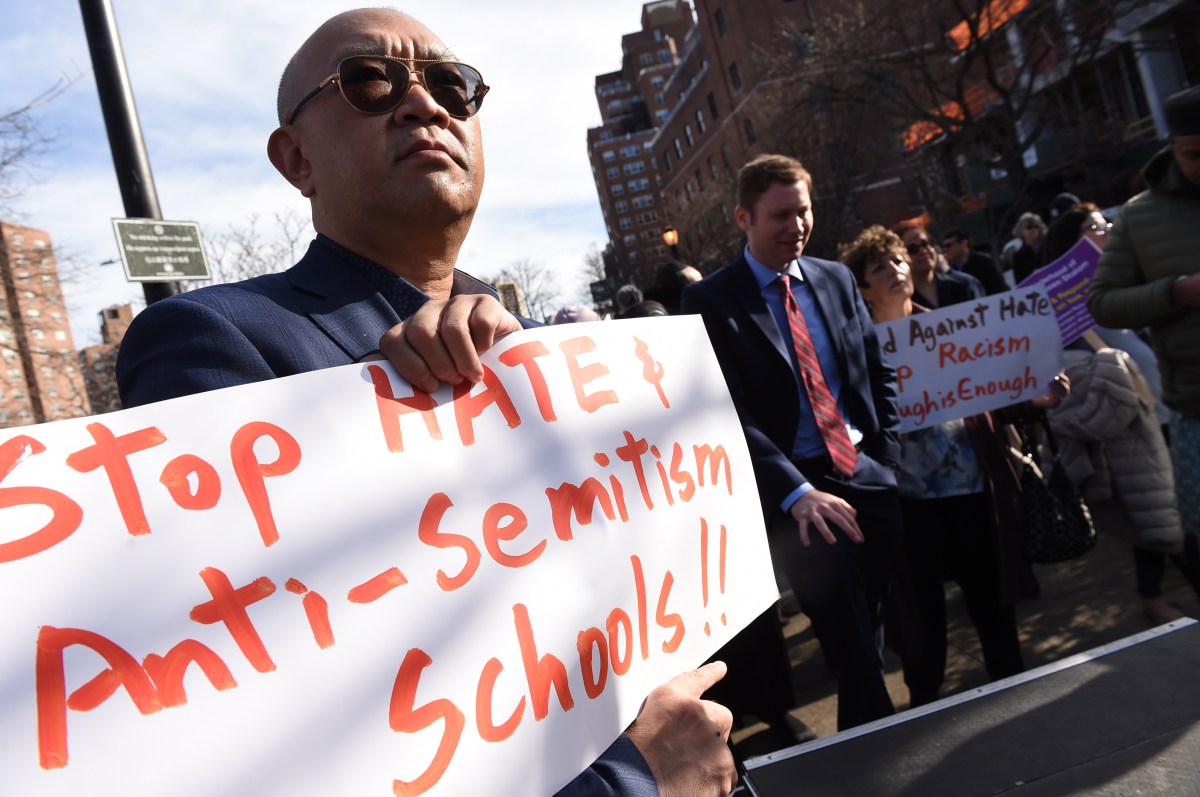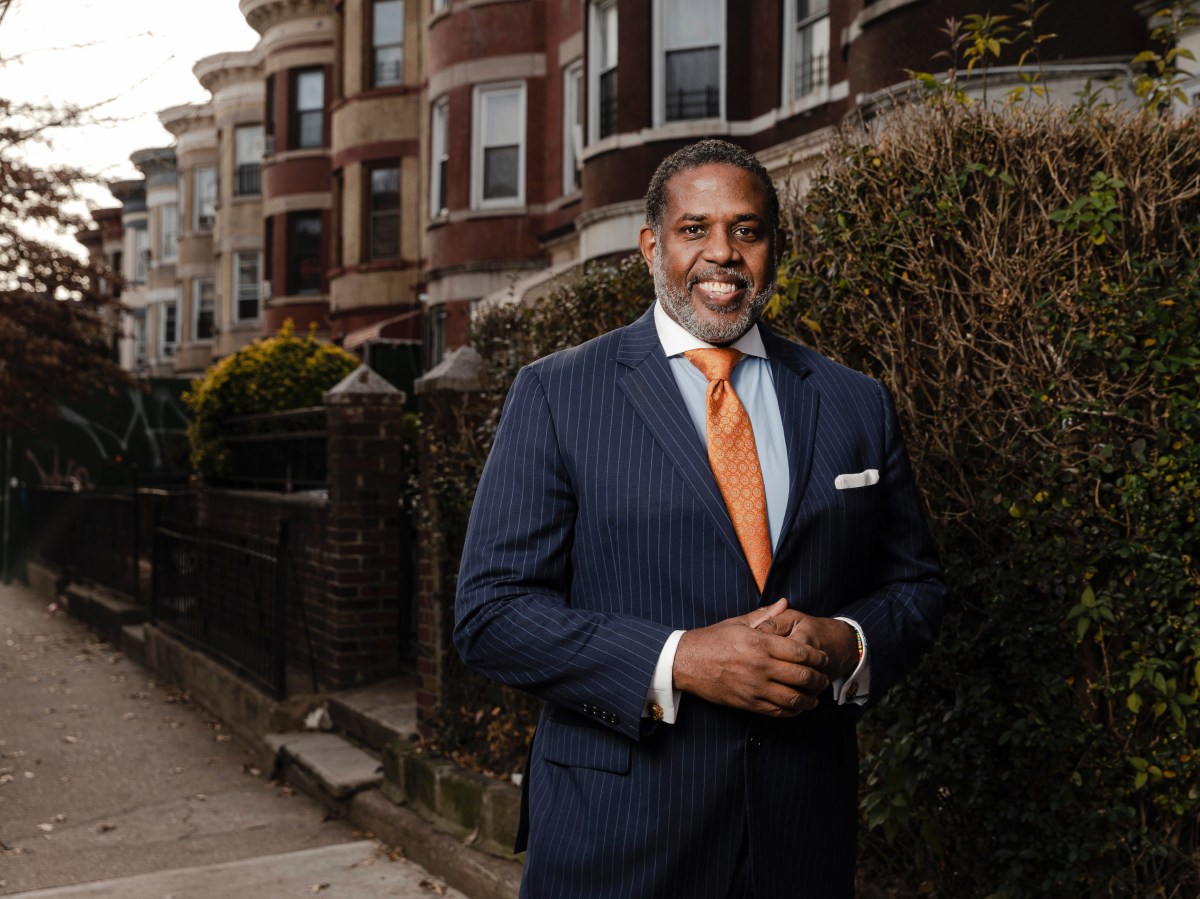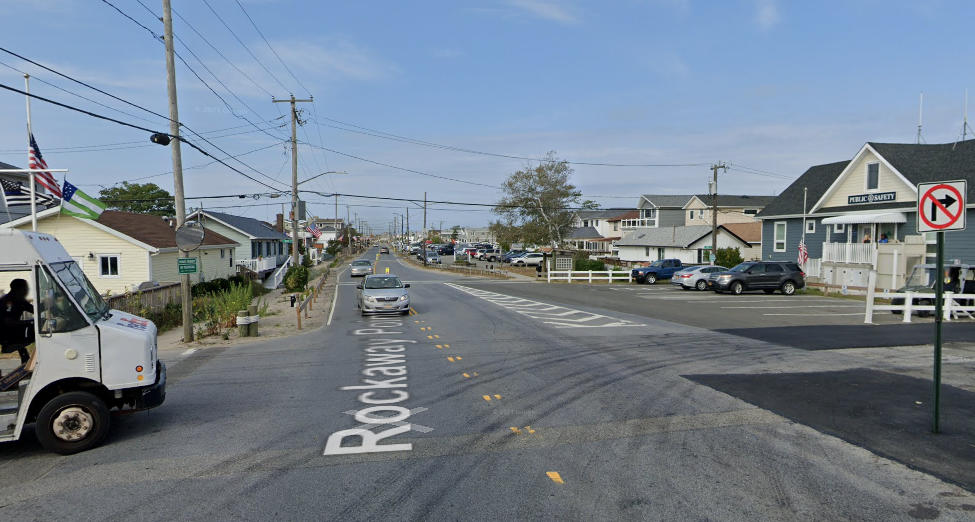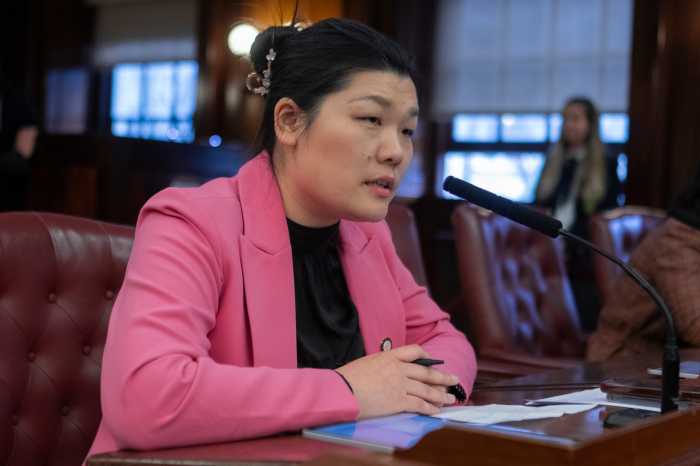The new New York state budget that the state legislature passed and Governor Andrew Cuomo signed Thursday includes significant changes to the criminal justice reform laws giving more discretion to judges on certain crimes and a hate crimes act that makes those murders and “acts of domestic terrorism.”
The hate crimes bill the “Josef Neumann Hate Crimes Domestic Terrorism Act” — named in memory of the Monsey Rabbi, stabbed in December and died this past Monday — defines hate-fueled murder with the intent to cause mass casualties as an act of domestic terrorism with penalties equivalent to other acts of terrorism.
The bill was sponsored by Brooklyn’s State Senator Andrew Gounardes and Assemblyman Simcha Eichenstein.
“The new measures to charge hate crimes as Domestic Terrorism and to allow those accused of committing assault and arson as hate crimes to be held on bail provides important protections for vulnerable communities at a time when the rising tide of hate has threatened our City and our nation,” Senator Gounardes said in a statement.
The bill came about after a spate of anti-Semitic attacks on Jews and other people. The bill was inspired by the attack on a Monsey synagogue by a lone attacker who had Nazi writings in his home. That attack ended in the death of Rabbi Josef Neumann and injuries to five others. An attack on a Jewish grocery store that killed six people also highlighted the need for the bill, elected leaders say.

The more controversial part of this change in the criminal justice reform laws includes adjustments to the 2019 bail reform law that addressed inequities in the criminal justice system. The reform law was passed because it was determined that is unfairly held people in jail if they were poor and couldn’t afford bail.
The budget clarifies the 2019 law to make sure judges know all the options available to them with respect to non-monetary conditions for release; enhances the options upon which a judge can condition release, including mental health referrals and requirements to attend counseling; and it adds several offenses that can be bail eligible, including sex trafficking offenses, money laundering in support of terrorism in the 3rd and 4th degree, child pornography offenses, repeat offenders, and those who commit crimes resulting in death.
The changes to the law come after the NYPD and other municipalities reported jumps in crime involving people previously released without bail for other alleged offenses. Commissioner Dermot Shea alleged that the same people were being re-arrested after being released with a desk appearance ticket and at least one for those people then committed a homicide. Insiders say NYPD officials wanted more from the bill.
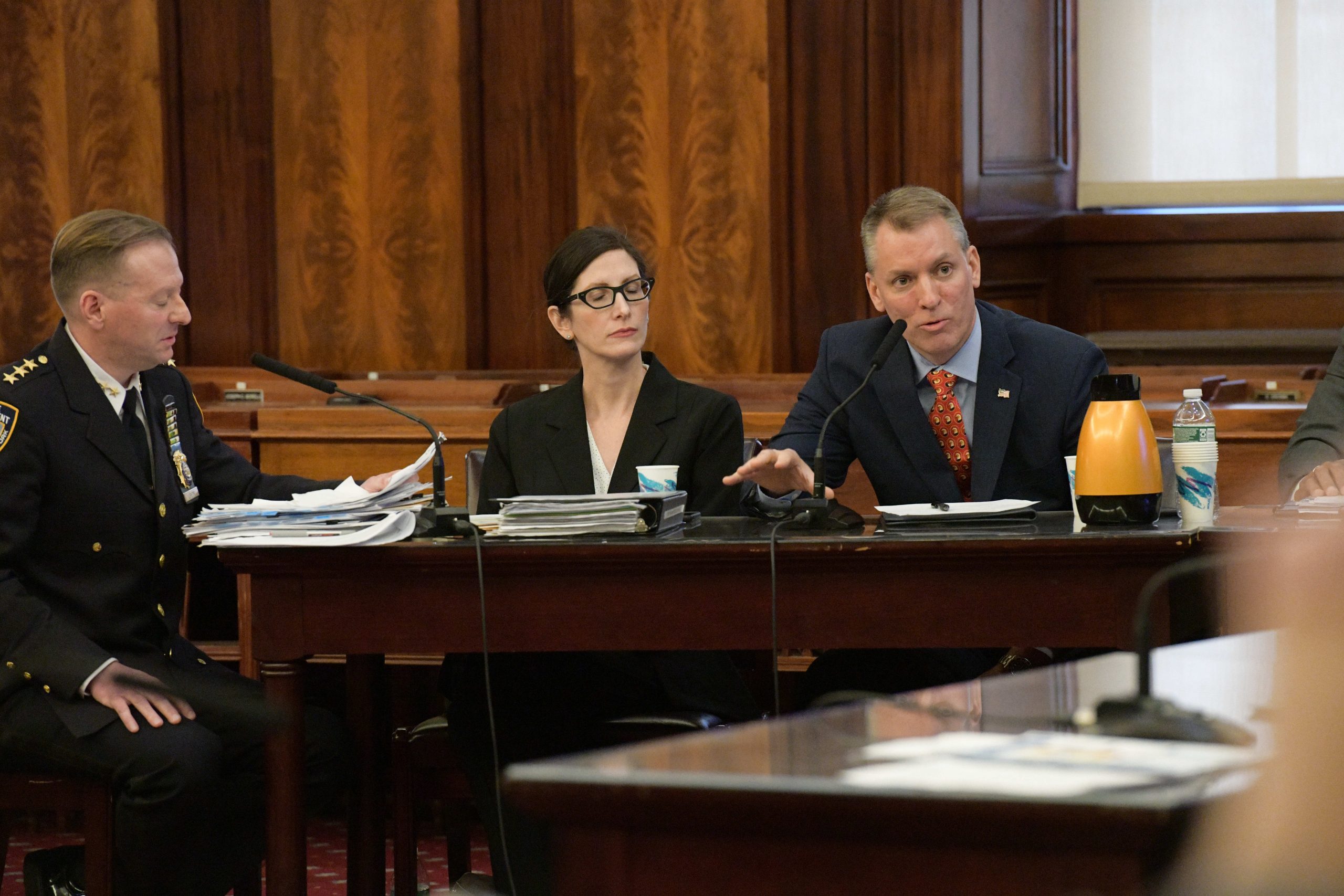
Even Mayor Bill de Blasio, a leader in the reform movement, changed his tune as the NYPD continued showing statistics that showed some of those released were re-offending.
Criminal justice reforms advocates cried foul over the changes, saying it would result in more people being incarcerated without having the benefit of a trial and would unfairly target “black and brown people.”
The bill received an okay by Speaker Carl Hestie because “it did not contain a ‘dangerousness standard’ and instead was more crime specific.”
Senator Jessica Ramos of Queens said there were good and bad portions of the bill, but she said she voted no on criminal justice reform changes saying it would result in more people being incarcerated. In a statement, she said, ” it dramatically rolls back bail reform and will send more New Yorkers to jail at a time when we should reduce our jail population, not expand it.”
Rashad Robinson, President of Color Of Change, issued the following statement in response to the New York legislature’s budget vote:
“For thousands of legally innocent New Yorkers who will be condemned to jails, today’s budget vote is a death sentence. In the midst of a global health emergency, Governor Cuomo and the majority of New York legislators voted to gut bail reform and lock up even more New Yorkers – who have not been convicted of a crime – in filthy, dangerous, disease-ridden cages. They did so over the objections of advocates, health officials, and even their own colleagues, some of whom had to take extraordinary measures just to cast their votes against this dangerous budget. New York’s bail reform law has helped to free people from incarceration, reunite them with their loved ones, and strengthen their communities. The decision to roll it back now, as COVID-19 decimates jails and prisons statewide, is simply unconscionable.”
State Senator Gounardes maintained that changes in the bail law were important going forward and he thanked Assemblyman Eichenstein and Governor Andrew Cuomo for making the changes occur.
“This change to bail law is important for the safety and well-being of vulnerable communities,” Gounardes said. “Our nation and our state have seen a disturbing rise in hate-motivated crimes, and the criminal justice system must view these crimes separately from those not motivated by hate. This change was responsive to the concerns of targeted communities.”
“This piece of legislation is a big win for vulnerable communities throughout New York State and I’m proud to have sponsored this legislation along with my Senate sponsor, State Senator Andrew Gounardes,” said Assemblyman Simcha Eichenstein who was the Assembly prime sponsor of the legislation, “Today, as we pass this budget bill, we take a positive step forward towards ensuring that these hate filled perpetrators, who often act irrationally and violently, will not be able to immediately strike again.”
The budget bill also closed a loophole in gun laws that will prohibit individuals who commit serious offenses in other states from obtaining a gun license in New York. It also allows judges to ban high-risk sexual offenders and those who assault MTA employees from accessing the MTA subway, bus and rail systems.
Governor Cuomo said he expects the National Rifle Association to sue over the change in the gun laws.
The state budget also included funding for the State Police Hate Crimes Task Force, established by the Governor in the 2018 to address the increase in bias-motivated threats, harassment and violence throughout New York State. The budget includes $2 million to support the Task Force’s ongoing work, and to bolster the monitoring of digital media which promotes violence, intolerance, selling of illicit substances and terrorism.



